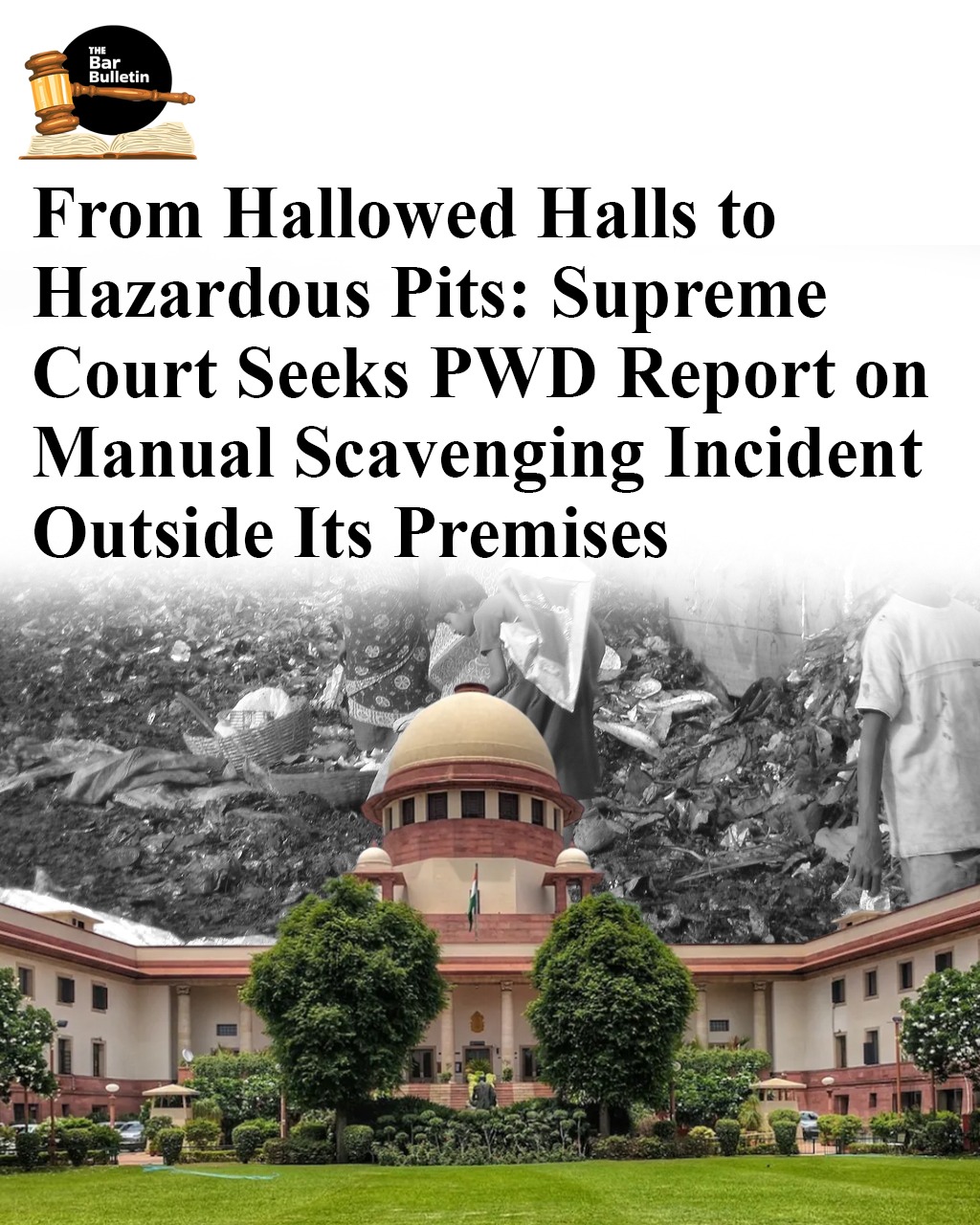The Supreme Court of India expressed grave concern after photographs emerged showing manual scavenging and hazardous sewer cleaning being carried out right outside its own Gate F. Taking cognisance of the photographs, the Bench of Justice Sudhanshu Dhulia and Justice Aravind Kumar sought an immediate explanation from the Public Works Department (PWD) as to why such unlawful and dangerous practices continue despite an absolute statutory and judicial prohibition. The Court warned that failure to provide a satisfactory response could result in directions for registration of an FIR against the responsible officials.
The matter is part of an ongoing public interest litigation on the elimination of manual scavenging, in which the apex court has been closely monitoring compliance with its previous orders. In January 2025, the Court had directed a complete end to manual sewer cleaning in six major metropolitan cities, including Delhi, and mandated total mechanisation of sewer and septic tank cleaning operations. Yet, the images placed before the Court by amicus curiae K. Parameshwar, Sr. Adv. revealed that the practice persists, even on the premises of the nation’s highest judicial body.
The Court also directed that the East Delhi Municipal Corporation (EDMC) be impleaded as a party, to explain why workers continue to be deployed in hazardous conditions in violation of the Prohibition of Employment as Manual Scavengers and Their Rehabilitation Act, 2013. This law not only bans the employment of persons for manual scavenging but also obligates full rehabilitation of those involved in the practice, recognising it as a severe affront to human dignity and a violation of fundamental rights under Articles 14, 17, 21, and 23 of the Constitution.
The Supreme Court’s approach builds on a line of landmark rulings, including Safai Karamchari Andolan vs Union of India[1], where the Court condemned manual scavenging as inhuman and unconstitutional and granted enhanced compensation to victims, along with ordering accountability for deaths in sewer cleaning. The Bench has consistently underscored that caste-based, degrading labour generally involved in manual scavenging must be eradicated through strict enforcement and proactive welfare measures.
Pointing to the irony of such violations occurring at its own doorstep, the Court stressed that no institution, however hallowed, can escape the duty to uphold constitutional mandates. It called manual scavenging not just a policy failure but a gross human rights violation that continues to claim lives. The Bench reiterated that mechanised cleaning, adequate safety gear, and strict liability for authorities are non-negotiable.
The matter is listed for final hearing on 10 September 2025, by which time the PWD and other agencies must file their explanations and outline corrective measures undertaken.
[1] (2014) 11 SCC 224
![]()

